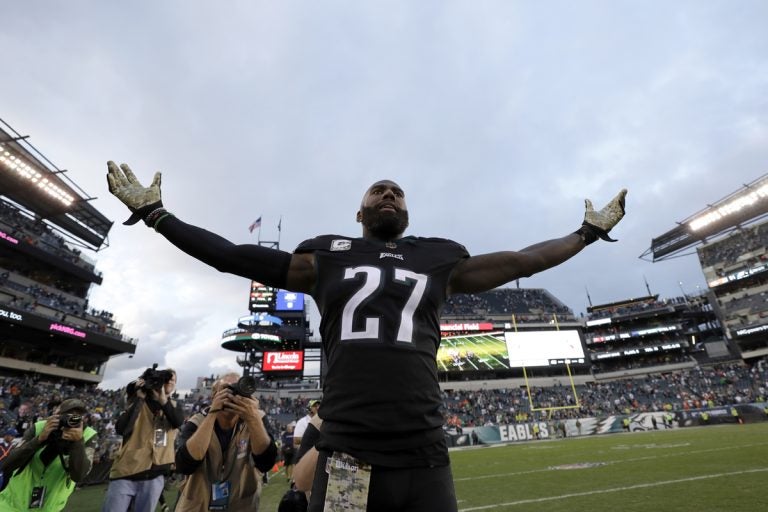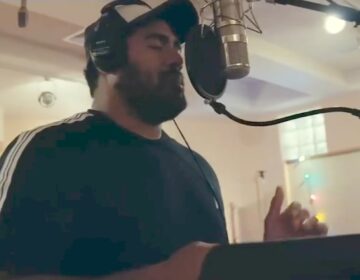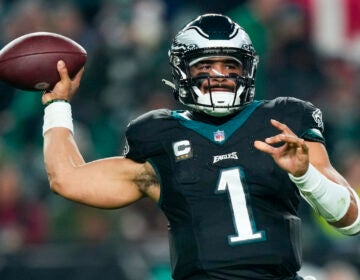Eagles’ Jenkins ending anthem protests as NFL pledges to address social justice
The NFL and the Players Coalition have joined in a partnership that calls for the league to donate $89 million over seven years.

Philadelphia Eagles' Malcolm Jenkins reacts after an NFL football game against the Denver Broncos, Sunday, Nov. 5, 2017, in Philadelphia. (Michael Perez/AP Photo)
The NFL and the Players Coalition have joined in a partnership that calls for the league to donate $89 million over seven years that will go towards “causes considered important to African-American communities.” The move means Eagles safety Malcolm Jenkins will not protest during the national anthem Sunday, but some players remain unsatisfied.
The Players Coalition was formed to address issues such as criminal justice reform, police and community relations, education, and economic advancement across the United States. In addition to Jenkins, it includes Eagles Rodney McLeod, Chris Long, and Torrey Smith.
Although nothing is written in the agreement regarding an end to anthem protests, Jenkins, who co-founded the group along with former NFL wide receiver Anquan Boldin, announced Thursday that he no longer plans to protest during the national anthem.This will be the first time since week two of last season that Jenkins will not put his fist in the air to protest.
“I don’t anticipate demonstrating this week simply because I felt like when I started demonstrating, my whole motivation was to draw awareness to disenfranchised people, communities of color, injustices around the country, our criminal justice system,” Jenkins said to reporters by his locker on Thursday.
But some players that were a part of the Coalition have stepped away, citing differences with Jenkins and Boldin on their approach to the proceedings with the league.
Russell Okung of the Chargers, Michael Thomas of the Dolphins, and Eric Reid of the 49ers all announced on Tuesday that they have withdrawn from the group.
Reid, who was was the first to join his teammate Colin Kaepernick in protest, took to Twitter to air his grievances:
“The Players Coalition was supposed to be formed as a group that represents NFL athletes who have been silently protesting social injustices and racism,” Reid said. “However, Malcolm and Anquan can no longer speak on our behalf as we don’t believe the coalition’s beliefs are in our best interest as a whole.”
Okung fired off a tweet of his own:
“The NFL continues a disingenuous approach to player grievances, refusing to match the urgency of this movement. Their proposal is woefully inadequate… Don’t believe the hype. I encourage players to continue to exercise their constitutional rights.”
If the NFL’s goal in completing this agreement was to end anthem protests, it’s unclear that’s going to work out.
Although Jenkins knows what he will be doing on the sideline while the anthem plays on Sunday, he, just like us, will have to wait to see who continues to protest.
“I think that’s going to come down to each and every person,” he said.
Regardless of what happens, Jenkins hopes that the NFL turns the issue of civil rights and inequalities into a campaign similar to what they’ve done with breast cancer and the “Salute to Service” which honors military personnel.
“I know for me, I’m less concerned about the money and more concerned about the awareness, because I feel like the opportunity to use the NFL’s stage will draw more money than we’d ever be able to do on our own.”
WHYY is your source for fact-based, in-depth journalism and information. As a nonprofit organization, we rely on financial support from readers like you. Please give today.




